Recent years have been a wakeup call for a lot of people on the importance of a strong immune system. While that’s always a good idea year-round, it always becomes more important as winter approaches. Flus and colds are not only annoying, they can quickly deplete your body and make you feel “off” for weeks, if you’re not on top of things.
By being proactive and taking steps to boost your immune system naturally and holistically, you not only reduce your chances of getting sick, you will also recover faster, if you do get sick.
This post is by no means exhaustive – there’s a lot to be said about keeping a healthy immune system! For instance, related to your emotional wellbeing and emotional coping mechanisms. But to make things less overwhelming, I’ve decided to cover the foundational aspects of a strong immune system, plus other items you might not have heard of.
It’s about boosting your immune system naturally but also holistically, so it’s about approaching it from different angles.
This post is divided into three parts: diet, lifestyle, and essential oils. I hope you find it useful and not too long (feel free to jump around using the links below).
Your immune system
Without getting too technical, the immune system can be divided into two basic responses: innate and adaptive.
The innate response is the first response – it’s quick and not very specialized, therefore less effective. The adaptive response recognizes pathogens and will remember them if exposed again, producing a fast pathogen-specific immune response.
This is the basic principle behind vaccines, for instance, which a lot of times will also produce an innate response when injected, causing a fever or other symptoms.
The onset of an immune response will result in inflammation – redness, swelling, heat, pain. These are all “good” signs of an effective immune response. However, that response also causes damage to the tissues, which will need to be repaired. (*)
Boost your immune system naturally – Diet
So let’s start with one of the major factors that are vital for a well-oiled immune system – your diet.
Like I mentioned, the natural and healthy immune response of the body will cause inflammation. Now, if that inflammation is short-lived because the immune system is strong and was able to fight off the intruder – no harm done. You replenish nutrients to repair the tissues damaged in the immune response and move on, fully prepared for the next attack.
However, if the inflammation is on-going and repetitive, this is a major problem. That is exactly what happens when you are on a so-called Western modern diet. This diet is very high in sugar (in one form or another), processed foods, and trans-fat, not to mention all the toxins and artificial hormones.
All of that is well-known to cause a low-grade, whole-body inflammation that continuously taxes the immune system and affects our natural resistance to pathogens. An activated immune system requires more energy during periods of infection.
You need adequate and proper nutrition in order to boost your immune system naturally and repair the damage to the tissues caused by inflammation.
What to eat to boost your immune system naturally
A well-rounded, whole foods based and nutrient-dense diet is the best thing for a strong immune system. However, there are specific nutrients that are known to improve the immune response and reduce chronic inflammation. (*) It’s important to make sure you’re not deficient in the following.
- Zinc (mild deficiency causes widespread defects in innate and adaptive immune response)
- Vitamin C (supports both immune responses – you need higher amounts if already sick)
- Vitamin A (enhances immunity and regulates immune function; important for tissue regeneration)
- Arginine (helps heal injuries and boosts immune function)
- Omega 3 fatty-acids (has protective effects and is anti-inflammatory)
- Polyphenols (one of many bioactive compounds found in fruits and vegetables – also anti-inflammatory)
- Selenium (deficiency puts you at higher risk of chronic diseases – essential for optimal functioning of immune system)
- Glutamine (important source of energy source for cells in general, including the ones involved in the immune response)
- Vitamin D (regulator of both the innate and the adaptive immune system – there are vitamin D receptors in most immune cells)
The vitamins A, B6, B12, C, D, E, folate, together with iron, zinc, copper, and selenium all work together to support the immune system. All of them are essential for the production of antibodies, except vitamin C and iron. (*)
In a nutshell, you need a nutrient dense, anti-inflammatory diet, ideally combined with probiotics and prebiotics for improved gut health. (*) Prebiotics promote the growth of valuable gut microorganisms, while probiotics are actual live microorganisms you add to your gut.
More on the subject of gut diversity under the lifestyle section further down.
Nutrient food sources to boost your immune system naturally
Zinc: oysters, red meat (lamb, beef), pumpkin and hemp seeds, chickpea, lentils, kefir, yogurt, mushroom, spinach, avocado, almonds
Vitamin C: sauerkraut, kiwi, bell peppers, pineapple, strawberries, oranges, papaya, broccoli, parsley, tomato, kale
Vitamin D: sun exposure, oily fish (salmon, herring, sardines, tuna), cod liver oil, egg yolk, mushrooms
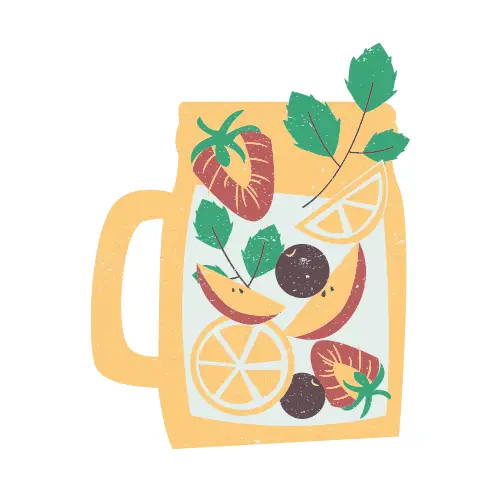
Selenium: brazil nuts, tuna, shell fish, salmon, halibut, pork, beef, chicken, turkey, eggs, tofu, whole wheat, shrimp, navy beans, shitake mushrooms, sunflower seeds, oats
Vitamin A: liver, cod liver oil, herring, carrots, tuna, squash and pumpkin, sweet potato, spinach, black-eyed peas, cantaloupe, lettuce, red bell peppers, broccoli, mango, dried apricots, tomato
Vitamin B6: milk, salmon, chicken breast, eggs, pork, beef, carrots, spinach, chickpeas, green peas, sweet potato, banana, potato, avocados, pistachio
Vitamin B12: animal liver and kidneys, clam, sardines, trout, salmon, tuna, beef, dairy, eggs, fortified foods
Vitamin E: sunflower seeds, almonds, peanuts, avocados, spinach, squash, kiwi, broccoli, trout, olive oil, shrimp, turnip/beet/mustard greens
Folate (B9): legumes in general, asparagus, eggs, mango, leafy greens, beets, citrus fruit, Brussel sprouts, broccoli, nuts and seeds, beef liver, papaya, banana, avocado, sweet corn, oranges
Iron: red meat, shellfish, liver and organ meats, apricots, white beans, lentils, chickpeas, spinach, dark chocolate, quinoa, turkey, broccoli, tofu, tuna, white mushrooms, squash, pumpkin seeds
Copper: beef liver and organ meats, oyster and shellfish, shitake mushrooms, sweet potato, sesame seeds, cashews, chickpeas, lentils, kale, Swiss chard, spinach, blackstrap molasses, salmon, dark chocolate, avocados, buckwheat
Immune-boosting superstars
Besides maintaining an anti-inflammatory, plant fiber rich diet, there are also specific foods and/or spices that you can add to it that will help you boost your immune system naturally.
Below are some of the most studied, beneficial, and readily available immune boosters.
Garlic & Onion
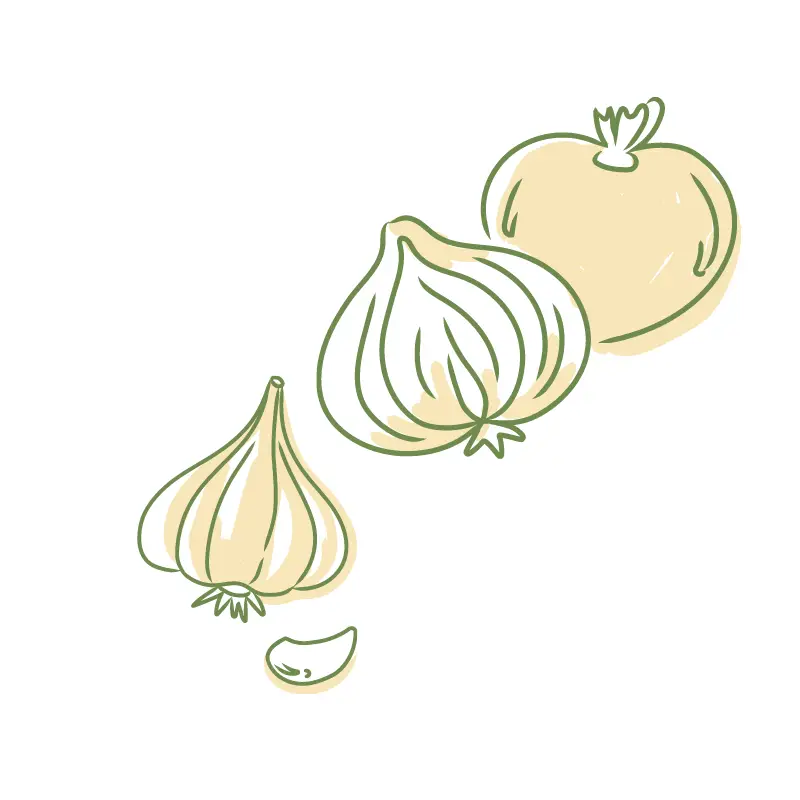
Both onions and garlic are part of the Allium family and are high in sulfur compounds.
They are both antimicrobial, antioxidant, anticarcinogenic, antimutagenic, anti-asthmatic, immunomodulatory (help regulate immune system) and prebiotic. (*)
Garlic specifically contains a higher concentration of sulfur and has strong broad spectrum antimicrobial activity against many kinds of bacteria, fungi and viruses. The main active, allicin, has been heavily researched as a possible anticancer agent.
It has also been shown to improve gut microbiota diversity and richness, due to its prebiotic properties. This is true for whole fresh garlic as it is for aged garlic. It enhances and helps regulate the immune system response and it has anti-inflammatory activity.
Onions though not as strong-acting as garlic, are also a powerhouse ingredient with a wide range of medicinal actions. These include antimicrobial, antiviral, antifungal, and anti-protozoal.
It helps protect the liver and the heart. It is also anti-inflammatory and helps to regulate the immune response. It helps with asthma, hypertension, diabetes and it is a powerful antioxidant. (*)
Turmeric (curcumin)
This one has become hugely popular but with good reason. It’s been heavily researched and the results are almost unequivocal.
It’s a strong immune regulator and anti-inflammatory. Even small doses can enhance the natural antibody response, when faced with a threat. (*)
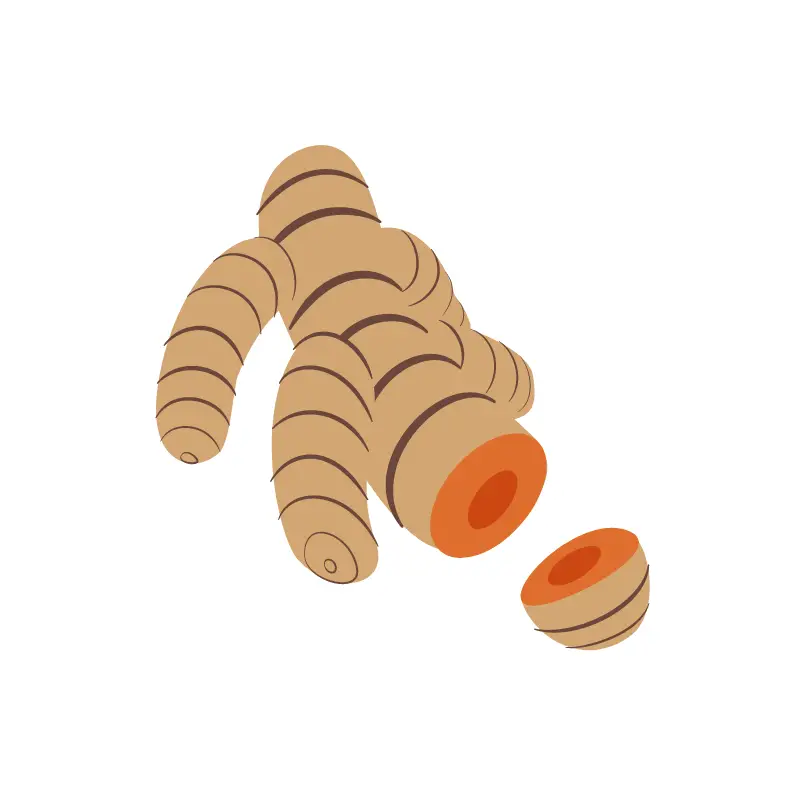
It is also being studied as a powerful anti-cancer agent. Not only does it seem to target the tumor itself, attacking its growth mechanisms and inducing tumor cell death, it also helps to restore the immune system’s own activity against cancer.
It’s non-toxic and it has several beneficial properties, including antioxidant, antiseptic, and analgesic (dulls pain).
The issue with curcumin is that it has a very low bio-availability, meaning the body doesn’t do a very good job of assimilating it. To help it boost your immune system naturally:
- consume with fat and black pepper in order to increase assimilation
- black pepper has been found to increase bio-availability of curcumin by as much as 2000% (not a typo – there are three zeros after that 2)!
Ginger

Ginger is another popular and well-known immune booster – it’s one of the best things to have around during flu season and will greatly help boost your immune system naturally.
It’s a powerful anti-inflammatory, antimicrobial, antioxidant. It helps with both the innate and the adaptive immune response. (*)
It is also a strong anti-cancer candidate.
Cinnamon
Another powerhouse, it boasts strong anti-inflammatory, antimicrobial, antioxidant, and immunomodulatory effects. (*)
It’s high in polyphenols and it’s being researched as both an anti-diabetic and cancer fighting agent.

Ginseng

Ginseng has been extensively reported to maintain balance of the immune system.
It enhances resistance to illness and microbial attacks, through the regulation of the immune system. (*)
Pick-me-ups & Tonics
These are all great tonics to have regularly as a boost, or to double-down on if you’re already feeling under the weather and want to boost your immune system naturally:
- Ginger & lemon peel tea: simmer partially covered (leave open only a slid) for 10 to 20 minutes
- Raw honey & raw garlic: crush garlic and leave about 5 minutes; add a teaspoon of honey and mix together
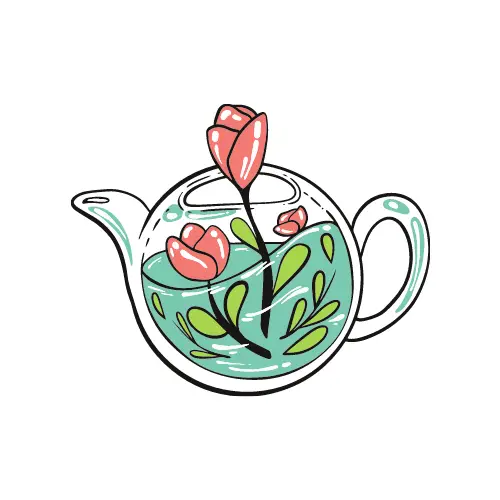
- Plain raw honey: if you just have an inflamed, sore throat. Take 1 or 2 teaspoons at a time.
- Cinnamon & ginger tea: simmer partially covered (same as above) for 10 to 20 minutes
- Elderberry juice: drink the juice. It stimulates immune response and fights infections. (*)
When used as prevention, once a day is fine. However, if you’re fighting an infection feel free to take these 3 or 4 times a day, until it’s under control.
If you’re not into making your own, you can also try commercial organic herbal immune boosters. Wise Woman Herbals is a great source for traditional herbal supplements. They’ve been providing high quality, organic herbal extracts to professionals for over 30 years, but they sell to the general public as well.
You can search their online shop by category (the immune system being one of them) and they have a very detailed description for all the ingredients in their products.
They’re a great resource – do check them out if you’re interested!
Boost your immune system naturally – Lifestyle
There are five major things you can do that will significantly boost your immune system naturally.
These are, in no specific order, sleeping well, breathing through your nose, exercising, maintaining a healthy gut, and cold exposure.
Sleep

The immune system plays a key role in alerting the brain to ongoing inflammation. Part of the brain’s response is to alter sleep patterns.
During an infection the body will:
- spend more time sleeping
- and more of that time in slow-wave (deep) sleep
This is believed to be in part to conserve energy that the immune system will need to fight the infection and maybe also so that the body can generate a fever (important in the immune response).
Sleep will affect both the innate and the adaptive immune system. During sleep there is a boost of anti-inflammatory agents in the body. Prolonged sleep deficiency, either because of disruptions or short duration, can lead to chronic, systemic low-grade inflammation.
There is evidence that chronic partial sleep loss might be worse for the immune system response than short-term total sleep loss. So while you may not have to worry much about a bad night’s sleep here and there, if you regularly undermine sleep time you’re putting yourself at risk for a host of chronic conditions. You’ll also be more prone to getting sick.
Get a good amount of quality sleep, in order to boost your immune system naturally.
Related content: How To Get Deeper Sleep in the Simplest (Scientifically Proven) Steps!
Nose breathing
You don’t hear about this one very often, but it’s extremely important if you want to boost your immune system naturally.
It influences not just your risk of infections, but not doing it also puts you at higher risk for periodontal diseases, skin issues, and asthma, to name a few.
The nose has three basic functions: olfaction (smelling), air-conditioning (by warming and humidification), and defense (by filtering particles, irritants, and removing vapors).
These last two functions help protect the lower respiratory tract from infections, microbial colonization, irritants, allergens, and air pollution.

When you breathe through your mouth not only are you bypassing all of that important first level protection, you are also helping to push pathogens more deeply inside the lungs.
Mouth breathing has also been widely linked to chronic bronchial inflammation, increased water and energy loss, decreased growth hormone release, release of inflammatory and oxidative agents, higher load on the upper back and neck muscles, deformity in the airway passage and craniofacial deformities (*). This is especially the case if it’s something carried from childhood into adulthood.
If you’re interested in digging deeper into the importance of nose breathing, or the effects different types of breathing have on the human body, check out James Nestor. He’s a journalist and author who’s done some serious and mind-blowing research on this topic.
But in a nutshell, if you do nothing else in the breath and breathing techniques department, remind yourself throughout the day to breathe through your nose!
Related content: What else can breathing do for you? How To Relieve Stress Quickly (just 2 minutes!)
Exercise

There is a lot of research done on exercise in general but also specifically on how it can boost your immune system naturally.
A lot of it is done on professional athletes, who tend to overexert themselves by virtue of their trade, so the results are a bit confusing at times.
What type of exercise is better
Overall, the findings are that moderate bouts of exercise have a positive effect on the immune system, resulting in fewer sick days and fewer respiratory tract infections.
On the other hand, intensive exercise, meaning prolonged heavy exertion lasting longer than 90 minutes, can have negative effects on the immune system. If coupled with other factors, like exposure to new pathogens, lack of sleep, severe stress, malnutrition or weight loss can result in a compromised immune state. There seems to be an open window of poor immunity that can last anywhere from 3 to 72 hours.
If bouts of too strenuous exercise are repeated, as in a regular thing, it can lead to immune dysfunction.
Also worth noting is that aerobic exercise has been found to be the safest for an aging immune system and reduction of chronic inflammation.
Another positive trait associated to regular exercise, that also relates to improved immune function, is the increase in gut microbiota. Athletes have been found to have considerably more diverse gut microorganisms. Which is a nice segue into our next point: gut health.
A Healthy Gut
You might have heard of the importance of a good digestion and a healthy gut to your overall health. It’s something that’s been studied a lot in the last couple of decades.
It’s hugely important for your health and a basic foundation if you want to boost your immune system naturally.

How does the gut affect your health?
Gut microbes are a huge part of the human microbiome, which is a system of trillions of microorganisms of thousands of different species, including bacteria, fungi, parasites, and viruses.
In a healthy individual, they coexist peacefully and in symbiosis. They are even considered a supporting “organ” due to its many roles in the body’s operations.
- They inhabit all parts of the human body but are found in highest number in the gastrointestinal tract – the colon alone is believed to house up to 70% of all microbiota.
- Our microbiome begins at birth, by contact with the birth canal of the mother, and it will evolve throughout our lifetime.
- It affects our nutritional status, behavior, and stress response.
- As such, it can be a central or contributing cause of several diseases, such as IBD, GIT cancer, gall stones, liver disease, obesity, allergies, Type-1 diabetes, among others.
- It’s affected by endogenous (inner) and exogenous (outer) factors, including drugs (like antibiotics), obesity, diet, environmental exposure, and things like pet ownership.
- Provides a physical barrier to incoming pathogens, stimulating production of antimicrobial agents to fight them
- It affects the development and regulation of the hypothalamic-pituitary-adrenal (HPA) axis, which is our response to stress set-point. (*)
Our microbiota is not only vital for the development of our immune system as children, it’s also essential for a proper immune system response.
The majority of the immune cells in the body are found in fact in the gut-associated lymphoid tissue (GALT). This is an indication of the importance of the gut microbiome, specifically for our immune system.
General guidelines for a healthy gut
Now, there is a ton to be said about diet and how it affects the gut microbiota. The jury is still out on many, many things as this is a fairly new field of research. But so far it seems to be consensus that:
- plant heavy diets enhance the diversity of nutrients that reach the gut microbiome and therefore gut diversity. The indigestibility of plant cells provides excellent food for bacteria.
- protein ingestion has also been linked to more diverse gut microbiota.
- elements of the so-called Mediterranean diet also seem to promote gut health, such as the already mentioned plant-fiber, but also a higher fish intake and probiotics, in this case in the form of yogurt, that are also necessary for gut homeostasis (balance).
- You don’t have to consume fermented dairy necessarily to get a natural probiotic boost – any fermented food will do this, such as sauerkraut, or kimchi.
Cold Exposure

Sounds counterintuitive, but it can be life-changing. I’ve written a whole blog post about the benefits of regular cold water exposure. You can check that out for a more in-depth look at all the great things it can do for you.
Regarding the immune function, basically it helps boost white blood cells in the body and it’s linked to a lower frequency of respiratory infections.
You can enjoy the benefits of cold exposure by simply finishing every shower you take with cold water. Then work on gradually adding more time to the cold water jolt, in order to boost your immune system naturally over time.
Boost your immune system naturally – Essential Oils
Essential oils can be a really powerful addition to boost your immune system naturally. There are many wonderful and inexpensive ones you can choose from, but below are a handful of the most powerful and popular ones.
Notes on how best to use essential oils
The abilities of essential oils to penetrate the skin and be absorbed into the blood stream are not definite by any means.
There are studies that have proved that they do reach the blood stream, but the methodology has suffered criticism, mostly because they don’t account for essential oil vapors being taken in by the nose.
It seems clear that essential oil actives do penetrate the skin layers but to different degrees. This is also affected by the different conditions. Some essential oils can even act as penetration enhancers for other actives (eucalyptus seems to be effective at this).
- they seem to do better when applied in oily carriers – so your basic carrier oil.
- absorption is also enhanced when applied under occlusion (covered), so when it’s in hot and humid conditions.
The ability of essential oils to penetrate enough to reach the blood stream in sufficient levels seems to be by far more effective through the lungs. This happens by breathing in the vapors as the essential oil evaporates.
Essential oils are extremely volatile, meaning that the molecules will almost immediately be dissipated into the air. For this reason the strong scent reaches your nose almost instantly when you open an essential oil bottle or pour out even just a drop.
This is good news in a way, because they enter your respiratory tract and reach the lungs, where they will quickly get into your blood stream.
For better absorption of essential oils into the bloodstream
- use a vaporizer
- apply to chest or upper lip, diluted in a carrier oil
- apply to skin, in a carrier oil, massage thoroughly and breathe in the aroma
If using to treat a specific patch of skin, they will be affective simply applied in carrier oils.
- to increase penetration abilities into the deeper layers of the skin, apply to skin or gaze and place it over the affected area.
Immune-boosting Essential Olis
- Thyme: antimicrobial, antioxidant, antitumor, antiseptic (*)
- Oregano: antifungal, antibacterial, antioxidant (*) (*) (*)
- Clary sage: antimicrobial, cortisol reducing (*)
- Geranium: antimicrobial, antibacterial (*)
- Lavender: antimicrobial, antifungal, boosts immune system (*)
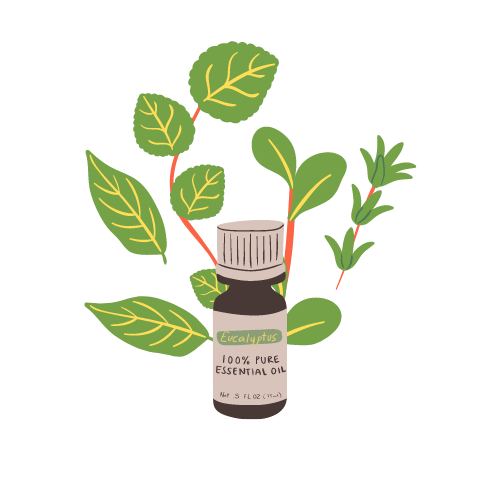
- Lemon: antiseptic, detoxifying, boosts immune system (*)
- Peppermint: anti-infectious, antimicrobial, antiseptic, fungicidal (*)
- Tea Tree: boosts immune system, antibacterial, anti-inflammatory, antiviral (*)
- Eucalyptus: antimicrobial (against many bacteria), boosts immune system, anti-inflammatory, antioxidant, analgesic, antibacterial, antiviral, and antifungal (*) (*)
I know it sounds like a lot of information, but when you boil it down it just comes to a handful of basics everyone already knows is important, mixed with a few choice add-ons you can try.
In order to boost your immune system naturally you basically want to get enough sleep, eat plenty of whole foods, fruits and vegetables, and exercise regularly. That in itself should actually take care of most of the threats.
But if you want to double down and really optimize your immune system then you have a whole other set of tools to work with. You can try them all, but also just pick the ones that will fit into your lifestyle better.
For instance, I’m not a big tea drinker, so I find it hard to add herbal infusions to my routine. If I do get sick, then I’ll go through the trouble of making them, but apart from that I’m not bothered.
However, I love using essential oils – I use them in my skin and hair care, in medicinal treatments, as aromatherapy – it’s easy for me. Make it easier on yourself, try one thing at a time and see how you feel!
What about you? Any immune-boosters you swear by?








